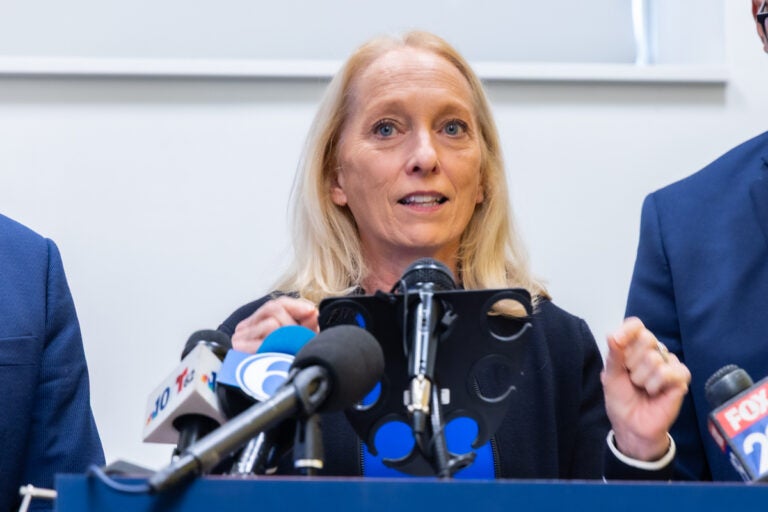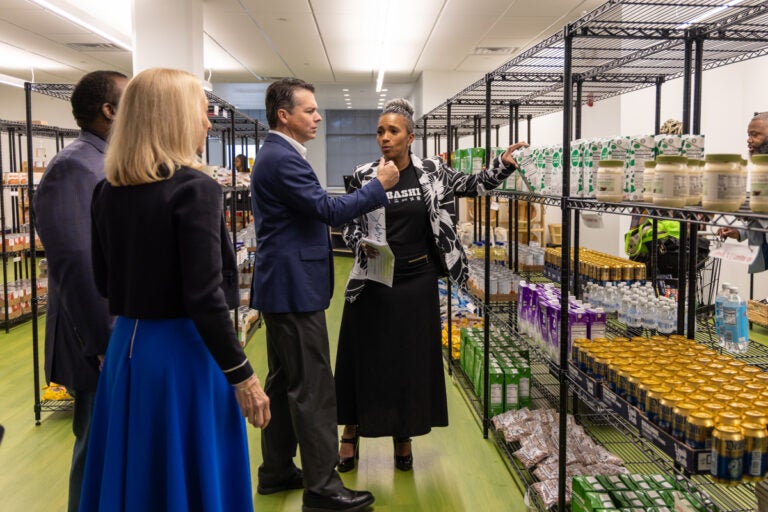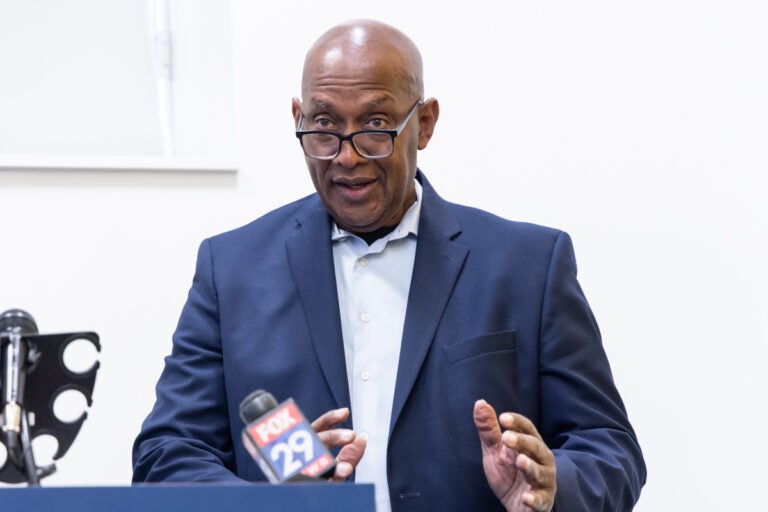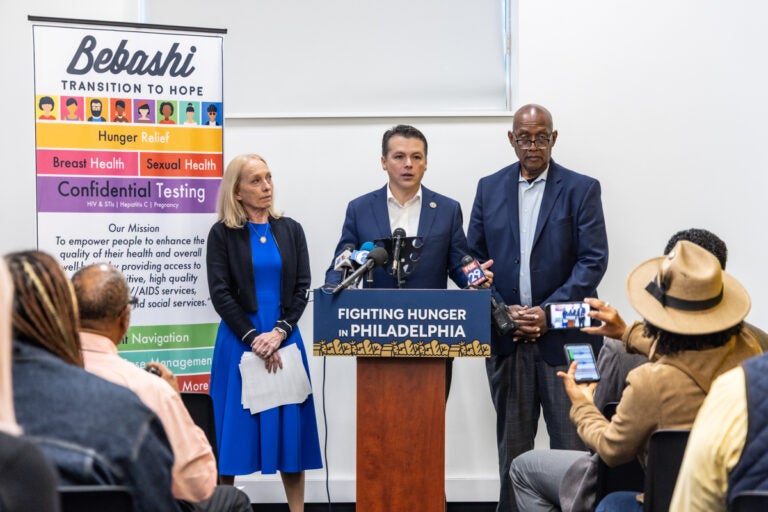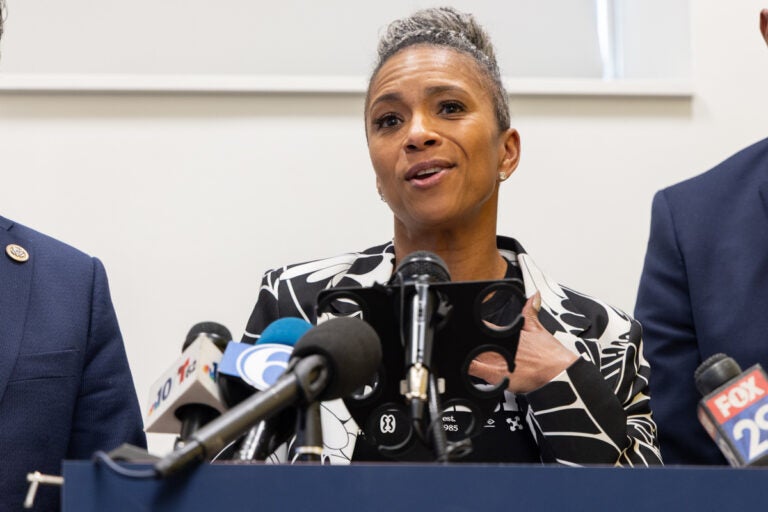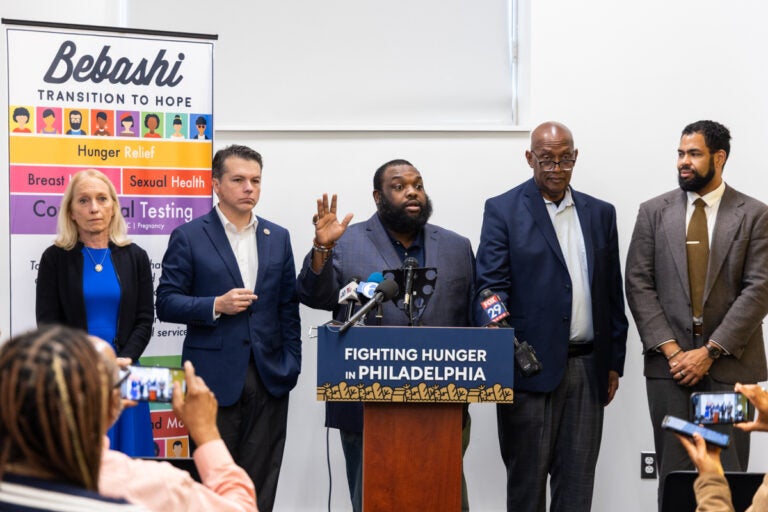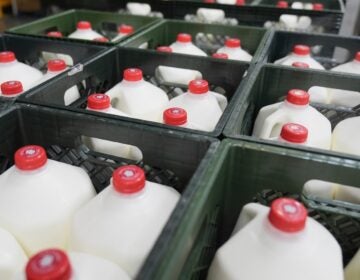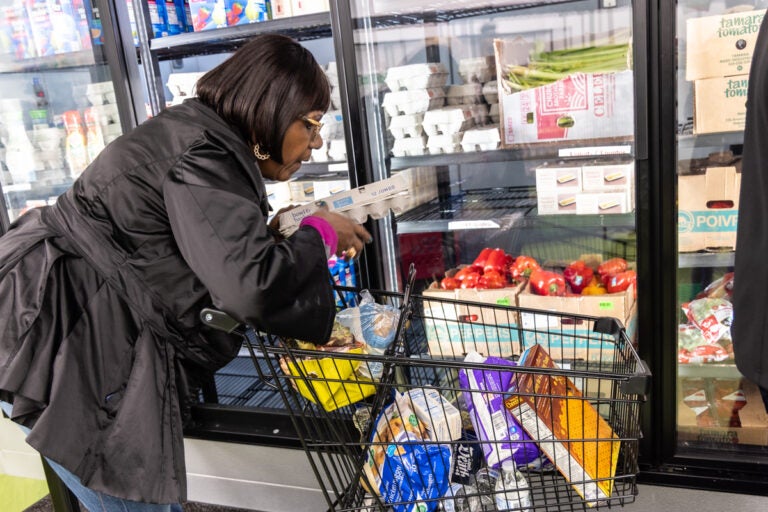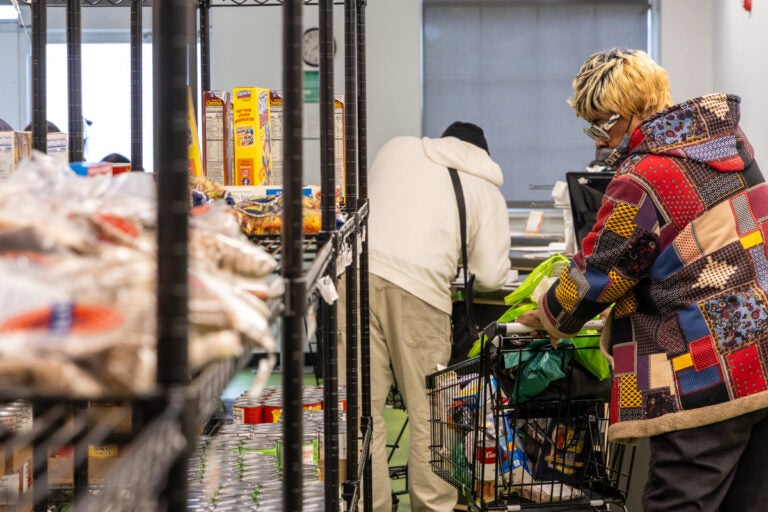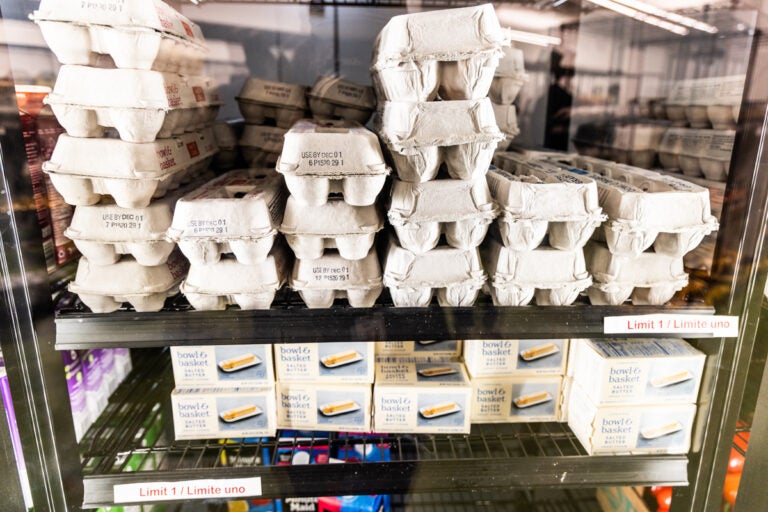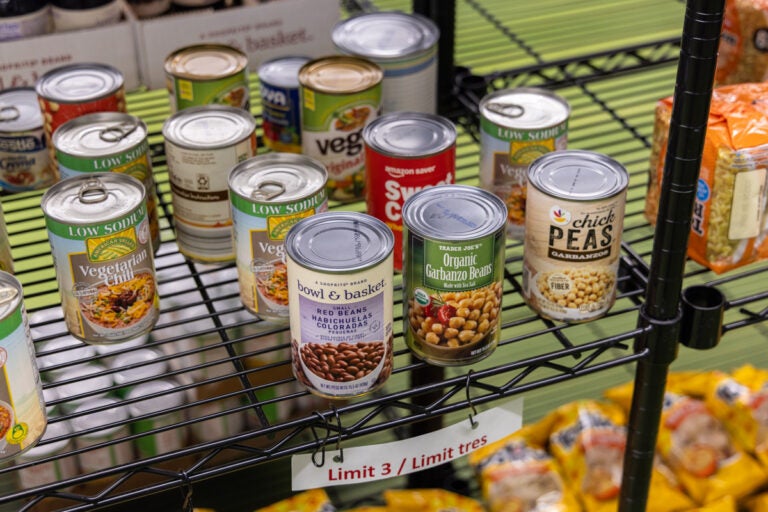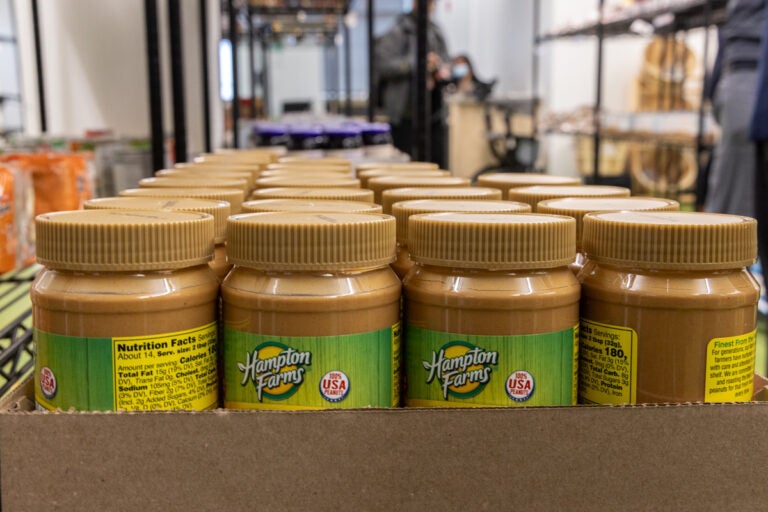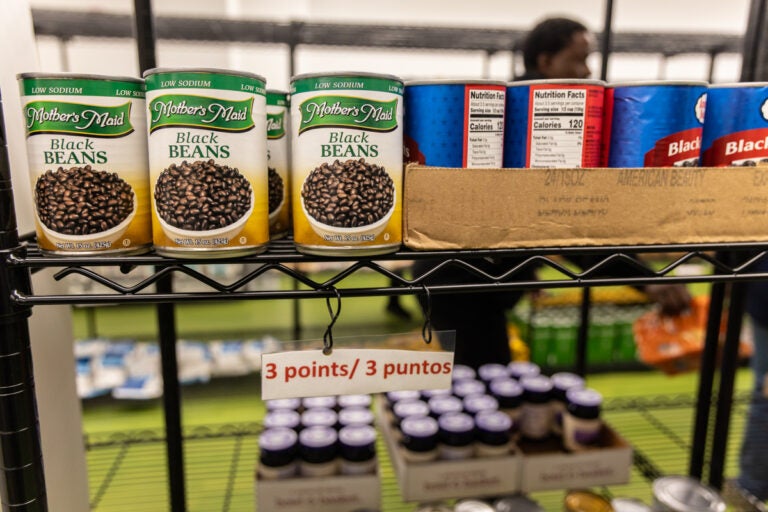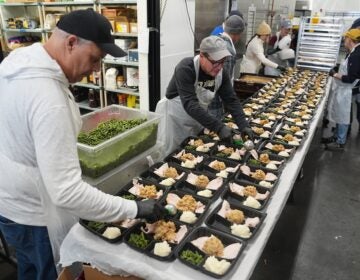As SNAP benefits partially restart, Pennsylvania food pantries and residents continue to feel the squeeze
After federal court rulings, SNAP will issue November benefits to over 2 million Pennsylvanians — but at only half the usual amount.
Listen 1:22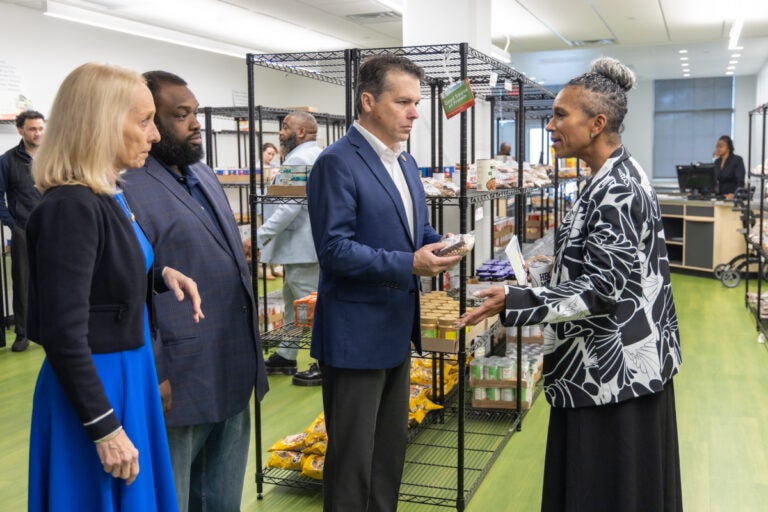
Sabrina Tate, CEO of Bebashi-Transition to Hope (right), showed U.S. Reps. Brendan Boyle and Mary Gay Scanlon, along with Pennsylvania state Rep. Jordan Harris, the organization’s West Philadelphia food bank, Nov. 3, 2025. (Kimberly Paynter/WHYY)
SNAP funding: What to know
- 42 million people — about 1 in 8 Americans — rely on SNAP
- Locally, that includes nearly 2 million people in Pa., with roughly 685,000 in the Philadelphia region, and more than 800,000 in New Jersey
- Here’s how to find other free food resources in the Philly region and in South Jersey, and how to help
About 2 million Pennsylvanians who rely on the Supplemental Nutrition Assistance Program will get some financial help this month as payments resume, but benefits will only be about half the amount people normally receive.
President Donald Trump’s administration froze SNAP food payments on Nov. 1 amid the ongoing government shutdown. After federal judges ordered payments to resume, officials announced Monday they would tap about $5 billion from a U.S. Department of Agriculture emergency fund to restore some of those benefits.
That amount falls short of the roughly $8 billion it costs, per month, to run the national safety net hunger program for people with low incomes.
Meanwhile, local food pantries that help fill the existing gap face growing demand as people struggle financially to afford enough food for themselves and their families.
“We have a room full of people just next door who are waiting to get in here because they want the opportunity to shop,” said Sebrina Tate, president and CEO at Bebashi – Transition to Hope, which runs the Food First Pantry in West Philadelphia. “People are afraid.”
State lawsuits and court battles over SNAP benefits
The Trump administration announcement, made in court filings, comes after Democratic state attorneys general and governors, including Pennsylvania Gov. Josh Shapiro, sued federal agencies over suspending SNAP payments.
Two federal judges then ordered the government to use emergency funds to at least partially or fully continue SNAP benefits.
The White House and GOP leaders in Congress have blamed the shutdown on Democrats as they hold out for a deal on health care insurance subsidies.
U.S. Rep. Mary Gay Scanlon, a Democrat who represents Delaware County and parts of Chester, Montgomery and Philadelphia counties, called the administration’s partial SNAP restart “the bare minimum.”
“With hunger growing across the country as inflation and unemployment tick up, and food prices remaining high, the administration should be doing everything it can to make sure that Americans have enough to eat, including reallocating funds and urging Congressional Republicans to get back to work,” Scanlon told WHYY in a statement.
Earlier Monday, Scanlon joined U.S. Democratic Reps. Dwight Evans and Brendan Boyle, who both represent Philadelphia, at the Bebashi pantry. They jointly called for U.S. House of Representatives Speaker Mike Johnson to reconvene the chamber and negotiate an end to the shutdown.
“We have a lot of work to do, work that is not getting done,” Boyle said. “We need to go back there, we need to address the SNAP issue and finally turn back on this assistance that people rely on in order to pay for the food they need.”
Rising demand at Pennsylvania food pantries
Organizations like Bebashi, which also provides health care and other social services, are working to fill the gaps with alternative food options in their communities, especially for people without current access to SNAP benefits.
Tate said calls from concerned and worried residents started coming in before the Nov. 1 freeze.
“There were people who were preparing, there were federal employees who are currently not working and there were people who just can’t afford the increase in how much food costs,” she said. “People who never ever used a food pantry before are now using a food pantry.”
Canned beans, gallons of milk, fresh veggies, produce and more are among the food staples readily available to people who come to the Food First Pantry.
Lula Bracey, 70, of North Philadelphia, placed some butter and eggs in her cart. She was at the pantry on Monday shopping with her sister, Linda Jackson, who is 76.
About one-third of Pennsylvanians who receive SNAP benefits are seniors.
“A lot. It’s very helpful,” Bracey said of local food assistance programs. “Due to what’s going on, just thank God, very grateful.”
Children, people with disabilities and many working residents and families who still struggle to make enough to afford groceries, rent, utilities and other costs of daily living are also among those who come to the pantry for help, Tate said.
As demand in the community grows, Tate said organizations are constantly trying to figure out how to support more people, sometimes with fewer resources.
“That’s an ongoing conversation. How do we brace ourselves?” she asked. “Our suppliers don’t have food either. So, we’re just getting what we can as opposed to being more selective in the past. Now, we’re asking for donations in a way we haven’t had to.”

Get daily updates from WHYY News!
WHYY is your source for fact-based, in-depth journalism and information. As a nonprofit organization, we rely on financial support from readers like you. Please give today.


